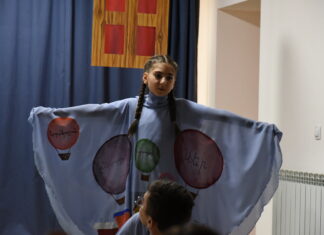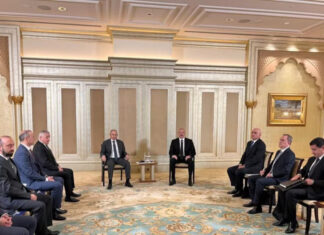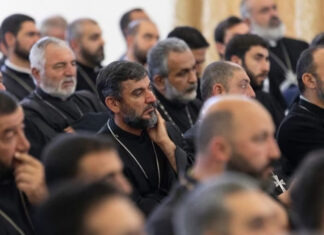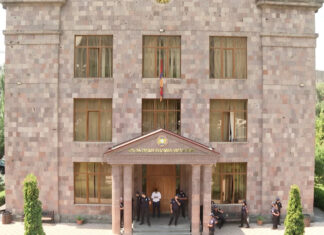For years, Armenia and Azerbaijan negotiated in the presence of mediators. If we study the Armenian-Azerbaijani negotiation process, we will see that since the beginning of the 1990s, the Europeans, Iranians, Russians and Americans have tried to sit the two states at the negotiating table and act as mediators. However, these negotiations were not particularly successful until the Organization for Security and Cooperation in Europe (OSCE) and the Minsk Group were established. There have already been dozens of meetings with the participation of the heads of state and foreign ministers to discuss bilateral relations and the Nagorno-Karabakh problem, with the mediation of the three co-chairs of the Minsk Group. It is noteworthy that for years the co-chairs of the Minsk Group had differences, especially the United States and Russia, but it turned out that the Minsk Group was the only format where the co-chairs had a common approach.
Naturally, the involvement of mediators was extremely important during this period. In fact, apart from the mediation mission, the involvement of the superpowers was a sort of straitjacket for the parties, especially Azerbaijan. Before the revolution in Armenia in 2018 and the resulting war in 2020, the situation already changed in favor of Azerbaijan. However, prior to 2018, Armenian diplomacy was able to use the presence of mediators to its advantage. In particular, the involvement of intermediary superpowers allowed the use of certain pressure mechanisms against Azerbaijan.
Although the mediators were impartial and often equalized the parties, this was only in public diplomacy. All parties knew that the situation was escalating, provocations were being made, attempts were being made to subvert the territory of Armenia and Artsakh, and Azerbaijan itself was the party regularly violating the ceasefire regime. The presence of mediators allowed pressure to be applied to Azerbaijan, considering the fact that Azerbaijan could very often not fulfill the agreements reached or partially fulfill them.
The best example of this pressure was the Vienna and St. Petersburg agreements reached after the April 2016 war, according to which Azerbaijan committed to deploying special mechanisms along the contact line to monitor border incidents. It was crystal clear that these mechanisms were directed against Azerbaijan, because it was Azerbaijan that regularly fired at Armenian positions. It turns out that the presence of mediators significantly strengthened the positions of the Armenian side and is considered an additional security mechanism, especially since all three involved states, Russia, France and the US, were friendly countries for Armenia where Armenia had a powerful lobby and influence. Moreover, Azerbaijani president Aliyev was saying that behind the closed doors there was pressure on him from all the involved parties to recognize the independence of Nagorno-Karabakh and the right of the self-determination of Artsakh people.
Looking at today’s negotiations, we see that the parties have started negotiating without any mediator. This puts the Armenian side in an extremely difficult situation, because behind closed doors Armenia is being given destructive conditions that it will have to accept. There are no international guarantees that will restrain Azerbaijan at least a little and give Armenia a chance to maneuver. Armenia made a big mistake when it decided to negotiate with Azerbaijan directly, without mediators.
In fact, this is the biggest failure of Armenian diplomacy in the context of all the failures that happened after the revolution. The result of the same diplomatic failures was the 44-day war, as a result of which Artsakh was partially, and then completely, lost. All preconditions against Armenia, which must be met by Yerevan, will also be a consequence of this. Of course, Armenia could still try to involve the US as a mediator in these negotiations, especially considering the Biden administration’s active involvement in the recent processes, but it seems that the Armenian government is comfortable with the one on one format.








